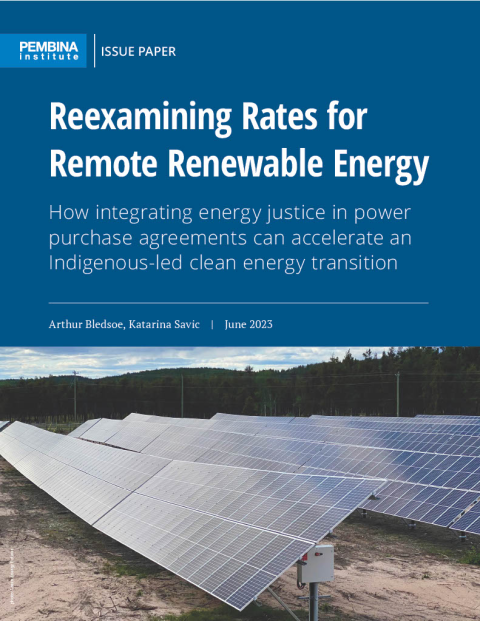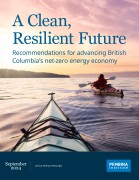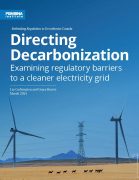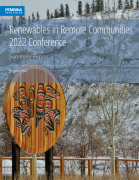In this paper, we consider the intersection of justice and energy with a special focus on the role of governments, regulators, and utilities in creating a fairer system for power purchase agreements for Indigenous clean energy proponents. As part of the discussion, we interrogate the Bonbright Principles and their role in maintaining systemic barriers which directly affect the uptake of clean energy in remote Indigenous communities.
Throughout, we explore concepts such as fairness, equity, justice, and reconciliation and the role they play in accelerating the implementation of clean energy projects in Indigenous remote communities across Canada. In addition, we provide a series of recommendations for how Canada’s energy sector can operationalize energy justice framing to both advance reconciliation and meet climate goals.
In practice, we recommend that:
- Provincial and territorial governments refine the mandates of regulatory bodies overseeing utilities to prioritize addressing climate change, advancing reconciliation, and promoting energy justice, along with providing secure and affordable energy, as primary components of the public interest.
- Utilities fully commit to reconciliation by forming long-term, trust-based relationships with Indigenous communities, and work with them to advance the community’s own energy priorities.
- Utilities should offer PPA rates above the avoided cost of diesel for Indigenous-owned and -led renewable energy projects and advocate for legislative and policy reform to make that possible.
The Pembina Institute continues to advocate for fair and inclusive rates (FAIR) and to push governments, regulators, and utilities to account for the value of renewable energy in Indigenous-owned and -led projects through the FAIR Initiative. This piece is one of several which underscores the core issues we advocate for as part of our FAIR work.








